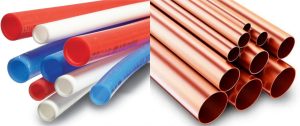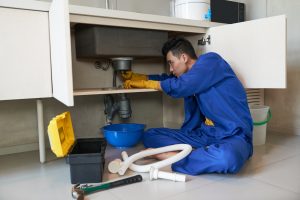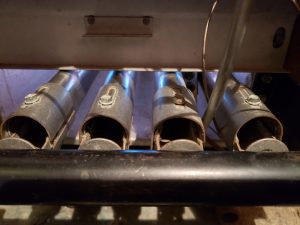In many ways, your home’s gas boiler system is a lot like your circulatory system. Rather than pumping blood to your various organs, a gas boiler is part of a closed system that helps to keep your home warm regardless of the temperature outside. While it might be easy to take this vital system for granted, if you don’t perform regular maintenance on it your gas boiler can fail, and when it does, having to sleep through a few chilly nights may be the least of your problems.
Generally, experts recommend that homeowners have their gas boilers inspected annually to keep the system running at peak efficiency.
How Does a Gas Boiler Work?
In order to understand why boilers need regular maintenance, it helps to know how they work. Think of your home’s boiler heating system like a giant circle; water is heated by the boiler to about 140° – 190° and is then pumped to the radiators located throughout the home where the heat is radiated into the room. The water, now cooled, is returned to the boiler to begin the process anew. The water never leaves the system.
How Regular Maintenance Keeps Your System Running Efficiently
Sadly, many homeowners forget regular home maintenance because they don’t understand the importance of it, or believe that “regular maintenance” is just an industry code word for unnecessary work. As a homeowner, it’s important to understand that while having someone perform regular maintenance costs a little bit in the short term, it can save big bucks in the long term.
As for gas boilers, regular maintenance includes things like:
- Removal of accumulated soot that has built up on the exchanger surfaces over time
- Inspection of component wear – component wear can affect the fuel-to-air combustion ratio, making the entire system less efficient
- Testing for proper combustion – Carbon monoxide is sometimes produced during combustion. There are acceptable limits that must not be exceeded. This CO test must be performed annually on older boilers.
- Cleaning of venting and inspection of chimney liner to make sure exhaust fumes are able to leave the house easily. Birds and squirrels will sometimes make a home in your chimney without you realizing it
- Ensure that the heating system doesn’t become over-pressurized which will lead to water leaks and possible property damage
- Testing of all built-in or added-on safety limits
It is also advisable to have a plumber take a look at the radiators for old leaking valves which can become a major issue if not resolved quickly. The plumber can also teach you how to bleed air from the rads, in order for the system to heat your home evenly.
When hiring a technician to perform this annual service, be sure to inquire about what they will be taking a look at and what they will be doing. The term maintenance may vary widely from one technician to another. This helps you to keep a detailed record of what work was completed on your boiler to help a subsequent technician with his or her inspection (you might have a different technician from one year to the next). Plus, it’s always good to know exactly what you’re paying for.
In many instances, we are big advocates for homeowners conducting their own maintenance. When it comes to gas boiler inspection and tune-ups however, this is generally something you should leave to the professionals. Many of the tests they conduct require the kind of experience and technical expertise that many homeowners simply don’t have – and we know that having them come in once a year to make sure your heat source will make it through the winter months unscathed is a small price to pay for a little piece of mind.






